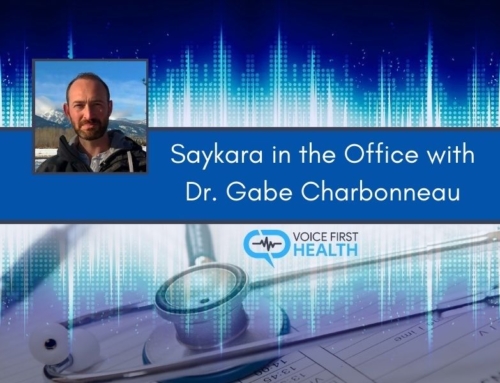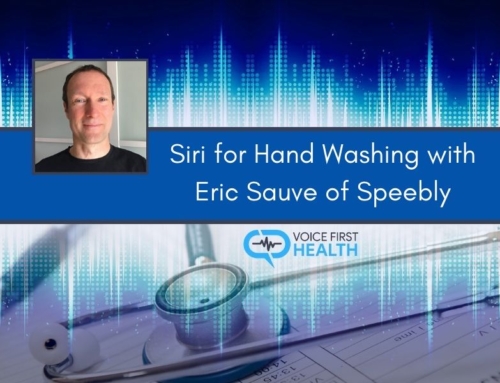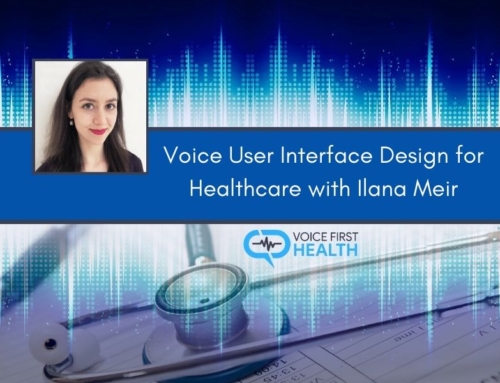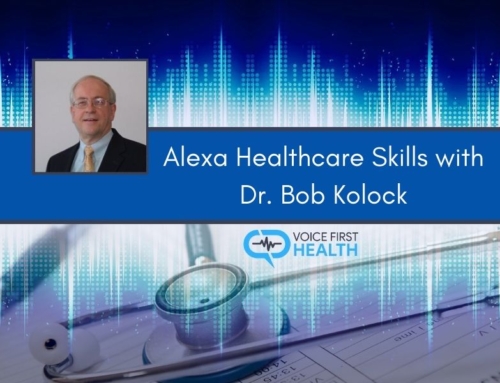VFH Episode 42
In this episode, Teri welcomes Dr. Harjinder Sandhu, the founder and CEO of SayKara, a company that is tackling the issue of medical documentation.
Dr. Sandhu has 20 years’ experience in speech and machine learning in healthcare, and is the former VP and chief technologist of Nuance Healthcare R&D. He started his career as a professor of Computer Science, taught at York University for a number of years, co-founded a startup that was doing speech recognition for dictations and sold it to Nuance. He also co-founded a startup that was focused on patient engagement.
SayKara’s goal is to free physicians from the mountains of paperwork that await them at the end of each day and the company’s solution is Kara, a virtual assistant that documents an entire doctor-patient conversation without interruption.
Key points from Dr. Sandhu!
- Why medical documentation is an important problem for physicians and why SayKara is focused on it.
The Origin of SayKara’s Core Focus
- Physicians have been doing dictation and they always have to type the data directly into the EMR and make sure the data is in the right places. Studies show that physicians are spending a lot of time on their screens (2 hours screen time for every hour of patient time). Physicians these days stare a lot at their screens while listening to their patient which is a bad experience for both the doctor and the patient. This is the challenge that Dr. Sandhu has been looking to solve with SayKara.
How SayKara Works
- They wanted to change the equation in terms of how speech recognition works.
- Their solution enables a physician to face their patient without looking at a screen.
- It runs on an iPhone or iPad, the physician just selects the patient then they sit and talk to the patient. The app listens in the background and captures the entire conversation. It then captures all the relevant data and enters it into the EMR. The next time the physician wants those notes, they will be in narrative form and look like they were written by the physician personally.

Ensuring SayKara’s AI Captures Conversations Accurately
- Capturing conversations and translating them into notes is a difficult problem.
- Speech recognition is about capturing words without necessarily understanding any meaning. It’s about predicting the next word and understanding the sounds that were generated.
- SayKara is focused on listening in on conversations and interpreting them. This is a problem that takes time and a lot of data to solve adequately. They didn’t have the necessary data to solve the problem so they embarked on capturing the data by creating a service that physicians could use. They created an augmented AI solution that is similar to the built-in AI in autonomous cars. The AI keeps learning, adapting, and improving.
- There are people who make sure that the AI makes the appropriate interpretations of conversations.
- The physician gets to sign off on the notes after they are produced by the application.
The New Release
- The previous version of SayKara was similar to the Alexa model where a user has to say Alexa every time they want to issue an instruction.
- They understood that physicians needed to do long form conversation and not short one sentence interactions.
- Previously, a physician had to say, “Kara” whenever they were interacting with the system, which disrupted the conversation a lot.
- They spent a lot of time trying to figure out how to make the interactions much more natural.
The Current Status
- They have had a phenomenal response to SayKara and are in a number of large health systems. They have been live commercially for about a year and are gradually growing their user base.
- Their user base has been a combination of physicians in large health systems as well as small medical groups.
- They are present in the US only for now.
- Physicians are saying how life changing SayKara is for them because they save so much time that they can spend doing other important things. It also improves their productivity and they make less mistakes because they speak out loud so patients can correct them where they’re wrong.
- Patients generally love that their physicians use SayKara.
Future Plans
- The big innovation for them now is to build a true clinical assistant system.
- They are teaching the system not to just listen but to also predict and understand what’s going to happen in an encounter.
- They’re trying to make the system smarter in terms of clinical pathways and have it become a natural clinical assistant.









